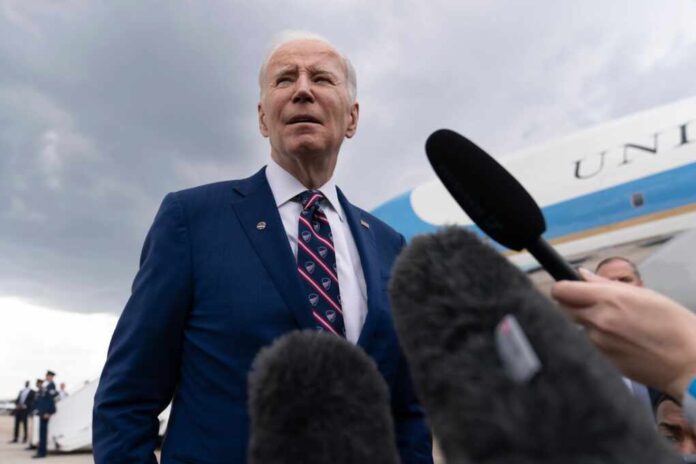
As the Biden administration grapples with the escalating crisis in the Middle East, efforts to rescue American hostages in Gaza ahead of a possible ground invasion by Israel face numerous complications.
The administration is racing against time to save the hostages before Israel’s planned ground invasion of Gaza begins, fearing that the chances of a successful rescue operation would significantly diminish once the invasion starts. However, their mission is complicated because they don’t have an accurate count of how many hostages there are, with at least ten Americans still unaccounted for.
American lives are on the line.
I’m pressing the Biden admin to quickly rescue American hostages. pic.twitter.com/3r4MfyIoJS
— Joni Ernst (@SenJoniErnst) October 17, 2023
Another challenge facing the administration is the potential ground invasion itself. The fear is that once Israel invades, negotiations will collapse, and the hostages’ fate will be further jeopardized. This concern was reflected in Joe Biden’s response when asked whether the ground invasion should be delayed. Biden emphatically said “yes,” although the White House later backtracked, claiming the president had misheard the question.
Despite these setbacks, the administration has made some progress. So far, two hostages, Judith and Natalie Raanan, have been released. The mother and daughter from Chicago were visiting relatives in Nahal Oz, a farming community in southern Israel when they were taken hostage on October 7. They were handed over at the border with Gaza and are now in the care of the Israel Defense Forces. Their release marks a significant breakthrough in the ongoing and complicated rescue operation led by the State Department, FBI, and intelligence community.
Pray for peace. The only reason our troops should touch the ground right now is for special forces to rescue 🇺🇸 hostages. The moves we’ve seen from Biden’s admin tell me that they want a full scale war. I hope I’m wrong but I don’t think I am. Dark times. https://t.co/ThNYf1XXQP
— Robby Starbuck (@robbystarbuck) October 22, 2023
In a statement, Biden expressed his joy at the release of the Raanans and reiterated his commitment to securing the release of all American hostages. He thanked the government of Qatar and the government of Israel for their partnership in the rescue efforts.
However, complicating matters further is that the hostages are not all in one location. They are spread among various subgroups of Hamas, with the organization claiming not to have a complete picture of where all the hostages are being held and by whom. This lack of information is undoubtedly hampering the administration’s efforts to free them.
Moreover, the political implications of the hostage crisis cannot be ignored. The situation raises the stakes for Biden as he seeks to secure the release of the Americans. The fate of hostages is always a highly emotional and politically charged issue, and this case is no different. There are clear parallels to former President Jimmy Carter’s inability to free 52 Americans held in Iran in 1979, which significantly harmed his reelection chances.
Furthermore, the recent deal by which Biden secured the release of five Americans from Iran by agreeing to unfreeze $6 billion in Iranian funds has faced criticism in the aftermath of the Hamas attack. This controversy highlights the complex moral and ethical questions surrounding hostage negotiations and the potential for such talks to encourage more hostage-taking in the future.
The Biden administration’s efforts to rescue American hostages in Gaza are fraught with challenges. From the uncertainty about the number of hostages to the potential ground invasion by Israel, the situation is highly complicated. Nevertheless, the administration has made some progress, and it remains to be seen whether they can overcome the obstacles and secure the release of all the hostages before it’s too late.













